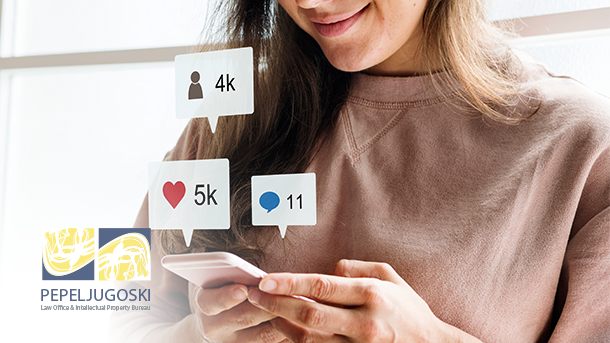It is more than obvious that traditional marketing methods are already a second thought during the preparation of PR campaigns of brands and companies around the world.
Social networks and online digital platforms are the new places to promote the products and services offered. In parallel, those traditional ways and already forgotten TV ads are now being replaced by the latest social influencers and their short videos.
However, such a change and seemingly quickly and easily established cooperation through just a few DM messages on social networks, already brings its own implications.
Namely, one of the latest legal issues in the USA is the possibility that influencers and those who carry out marketing of a certain good, bear secondary responsibility in case of infringement of intellectual property.
In July, 2022, the court of first instance in Florida with its decision in the case of UMG Recordings, Inc. v. Vital Pharmaceuticals, Inc. , (2022), indicated that there is a possibility that influencers may bear indirect liability if it is proven that the product they advertise infringes on the intellectual property of a third party.
In the case, a group of music producers sued a sports nutrition supplement company called Bang Energy. The plaintiffs brought proceedings for direct infringement of their copyright for certain works used in Tik Tok videos by Bang Energy, but also secondary (indirect) liability against influencers who used those videos and whom Bang Energy hired to promote .
The issue of secondary liability will be one of the most interesting in the civil proceedings that will be conducted before the court. This is especially due to the already previous views of the court that they adopted during the summary judgments, with which the plaintiffs were partly successful in the allegations that there is secondary liability.
Although unlike the codified trademark or patent norms, the federal copyright act does not regulate secondary liability, yet according to stare decision and precedential law, the court indicated that in order to have secondary liability in case of copyright infringement, the defendant must:
- had control over the one who committed direct copyright infringement, and
- to generate a financial benefit from the injury
It is interesting that in relation to the first criterion, the court decided that for control it is not always necessary that the persons participate in the preparation of the action (advertisement, video, etc.), but by the very fact that they had the opportunity and the right to stop or limit the direct injury , and they didn’t do that.
Hence, in terms of indirect liability, this indicates that from now on companies that collaborate with influencers will have to be very careful about the way and method in which the influencers promote their products.
Companies will have to seriously introduce parameters and conditions for influencers, because in the event that during various marketing videos, sketches, pictures, etc., the influencers use someone else’s work of art and cause infringement, it could also mean liability for the companies.
Such cases are becoming more frequent in the USA, and it remains to be seen how the social networks themselves will react to this in accordance with their internal policy.
It is expected this trend to become more present on the European soil as well, thus challenging the existing regulation and practice of intellectual property protection.

